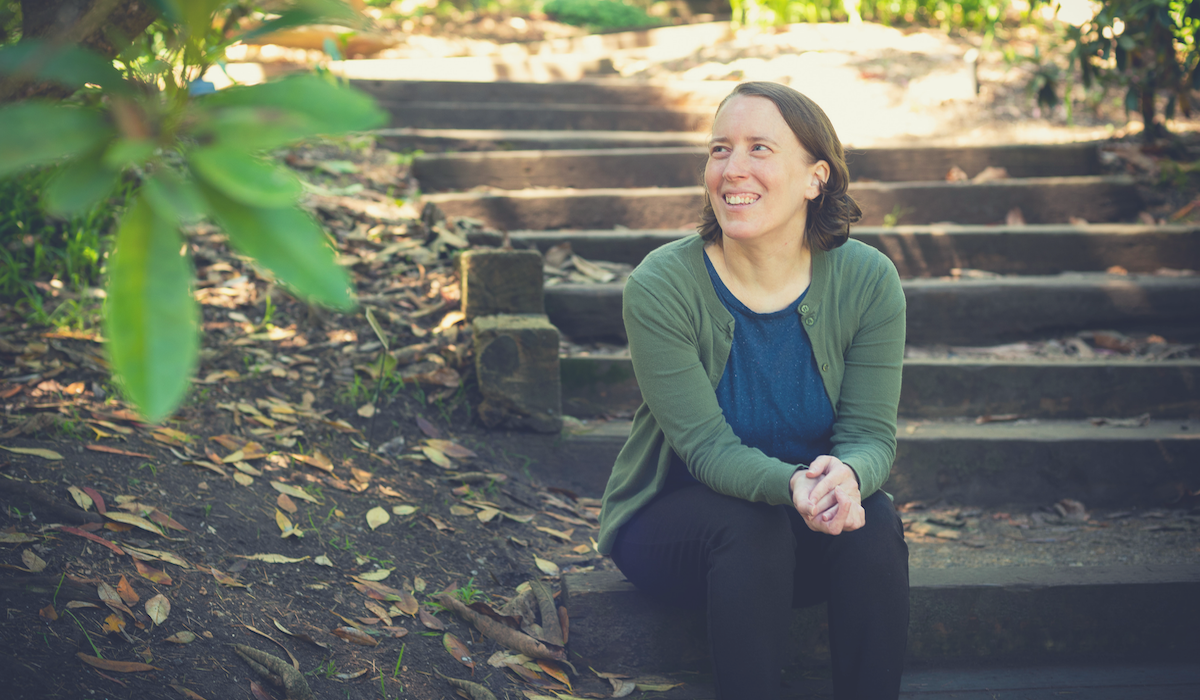How to Care for Yourself in Times of Loneliness

If there’s one thread that ties us all together this past year, it’s being separated from the people in our lives in one form or another. No chats with coworkers over lunch or running into a friend at your local coffee shop. No smiling faces at the grocery store or while taking an evening walk after dinner. Those familiar, friendly faces have been hidden behind masks or are isolating at home. Holidays, weddings, family gatherings, vacations, date nights, and even funerals are either nonexistent or look a lot different now.
There are so many reasons to feel isolated, to miss all the little (or big) moments of human connection that used to be built into your daily routine, and to grieve over the lost traditions and celebrations. Even if you’re living in a household full of people, you may still feel lonely. Loneliness comes not just in separation, but in disconnection and loss from people who really understand you. If you’re struggling with loneliness as you read this, you’re not alone in feeling that way.
Tending to Your Loneliness
Human connection is vital not just for survival, but plays a big part in your overall well-being. Countless studies have shown the impact loneliness has on physical and mental health, as well as our ability to manage stress. So if you’re feeling lonely and beating yourself up for making a “big deal” out of it, just know that your reaction is justified.
A few ways to tend to your loneliness and the feelings it brings up:
- Offer yourself compassion and validation for however you’re feeling. Not sure how to do that? Say to yourself what you would say to a friend or what you wish someone would say to comfort you. Something like “of course you’re feeling lonely, that makes sense because this is a really hard time”.
- If you live far away from those closest to you, are unable to gather safely outdoors, or struggle to connect online, it can be helpful to put photos of loved ones around your home to remind you of the people in your life.
- One of the most difficult parts of separation can often be the lack of human contact. Touch releases oxytocin in our brains, creating a sense of safety and relaxation. Hugs and handshakes are far more important than you may have realized. Simulate physical touch by using a weighted blanket or eye pillow, taking a warm bath, using a massage gun/tool, hugging a big exercise ball, or giving yourself a hug with knees pulled up to your chest.
- Seek out novelty and new experiences in whatever way is accessible to you. This may look like visiting a nearby town, exploring a new hiking trail, or trying a new recipe or type of cuisine.
- If your feelings of loneliness are the result of losing someone close to you, take time to grieve, especially if you weren’t able to attend any funeral services. You get to decide what grief ritual is best for you, but one option would be to set up an altar with photos, candles, and other special objects that remind you of them. Spend a few minutes every day sitting at the altar, allowing yourself to feel whatever feelings arise. It may also help to journal or write a letter to your lost loved one.
Reaching Out for Connection
Before this past year, there were many more spontaneous opportunities for human connection—with neighbors, your postal worker, store clerks, the coffee shop barista, coworkers, family, friends, the list goes on. Perhaps you didn’t even have to think about how to stay in touch. Or if you’re an Introvert like me, you were trying to figure out how to have LESS contact. However, after a year of working from home, going to school over Zoom, not being able to travel or attend social events, you may be finding yourself lonely and bored for the first time since your childhood.
A few ways to reach out for connection when social media isn’t enough:
- Write Letters or Send Postcards to family, friends, people you’ve lost touch with, a new Pen Pal, or strangers in need.
- Join an online Meetup community or online support group. Check your local library, university, bookstore, yoga studio, counseling center, or NextDoor for options in your area. The benefit of finding something local is the opportunity to make online connections with people who have similar interests that could develop into an in-person friendship later on.
- If you have a neighbor who has physical limitations or is not working from home, volunteer to walk their dog during the day. You could also consider fostering or adopting a pet of your own.
- Although it’s not the same as an in-person connection, don’t forget to use Zoom, FaceTime, or Google Meet to connect with friends and family in creative ways. Have dinner together, watch a movie, do crafting or game nights, or schedule a co-working session.
Whether it’s from a loss, separation, or disconnection, feeling lonely can have a big impact on your overall mental and physical health. If you’re feeling exhausted, irritable, sad, or anxious, that makes sense. Although this past year has turned life upside down, taking away many of the built-in opportunities you used to have to socialize, it’s possible to find creative ways to care for yourself and reach out for connection. It just may look a little different than you’re accustomed to.
This article was featured in the January 31, 2021 edition of The Sunday Paper. The Sunday Paper publishes News and Views that Rise Above the Noise and Inspires Hearts and Minds. To get The Sunday Paper delivered to your inbox each Sunday morning for free, click here to subscribe.

